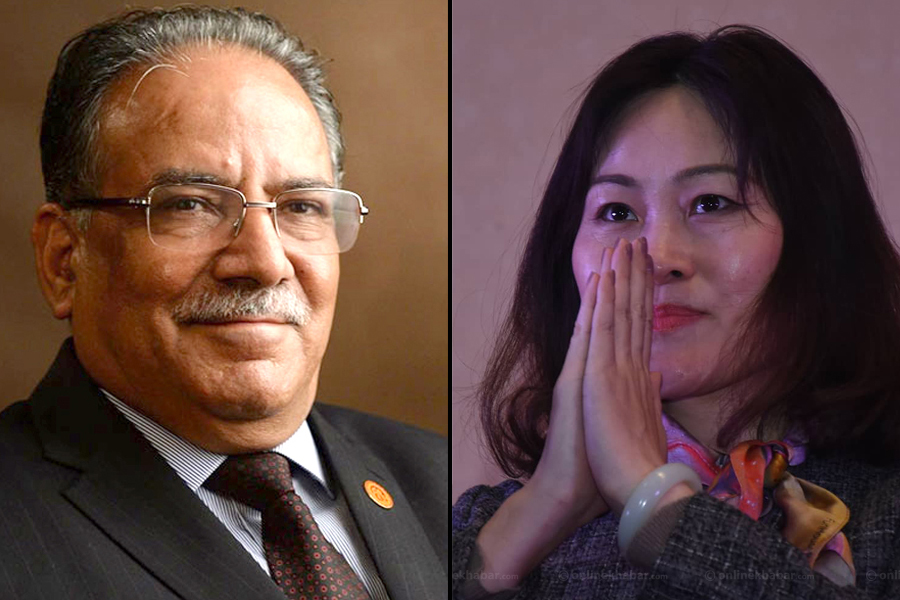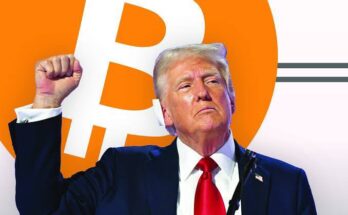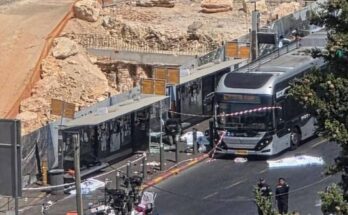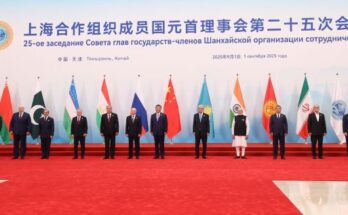
Team news Riveting
Kathmandu, December 24
Amid political crises in Nepal, Chinese Ambassador Hou Yanqi has swung into action and has held a series of meetings with the Nepali political leadership.
Two days after calling on President Bidya Devi Bhandari, Hou on Thursday met with Pushpa Kamal Dahal who claims control over the Nepal Communist Party after parting ways with Prime Minister KP Sharma Oli.
A member from Dahal’s secretariat confirmed the meeting that lasted for over half an hour. It described the meeting as “informal.” The secretariat however did not provide details but said “discussions must have revolved around contemporary political developments.”
Earlier in May, days ahead of a crucial meeting of the Nepal Communist Party, Hou had held a series of meetings with senior leaders, expressing concern over the power play that was ongoing then.
Then in July again, Hou had met a number of government officials and political party leaders, including the President, prime minister and leaders including Dahal, Madhav Nepal, Jhalanath Khanal and Bamdev Gautam.
The Nepal Communist Party was formed in May 2018 after Oli’s CPN-UML and Dahal’s CPN (Maoist Centre) swept the 2017 elections. But internal feud started to rear its ugly head from the early days, which later snowballed into a battle of egos between the two chairs–Oli and Dahal.
Thirty-one months later, the party finally split on Tuesday, with both factions now vying to retain the party name and the election symbol.
Chinese interest in the Nepal Communist Party has been quite apparent since the formation of the party, with many even believing that Beijing played a crucial role in bringing the two communist forces together.
The Chinese Communist Party and Nepal Communist Party were regularly engaged in training programmes. In September last year, the Nepal Communist Party had even organised a symposium, inviting some leaders from the Chinese Communist Party to Kathmandu to impart training to Nepali leaders on the Xi Jinping Thought.
Nepal’s politics has always been heavily influenced by geopolitical games in the region, and the split in the Nepal Communist Party comes on the heels of a flurry of visits from India, starting with a India’s spy chief and followed by those of the chief of the Indian Army, the foreign secretary and a key leader of India’s ruling Bharatiya Janata Party, giving political pundits ample ground to analyse.
Two days after Indian Foreign Secretary Harsh Vardan Shringla’s Nepal visit, Beijing had sent its State Councillor and Defence Minister Wei Fenghe on a day-long visit.
With the Dahal faction already declaring Madhav Kumar Nepal, a former UML stalwart who led the party for 15 years, as the party co-chair, the Nepal Communist Party has formally split in two, with another one led by Prime Minister Oli.
It’s up to the Election Commission now to decide which one–the one led by Oli or the one led by Dahal-Nepal–is the legitimate party.



